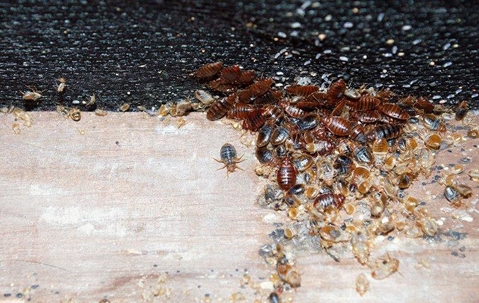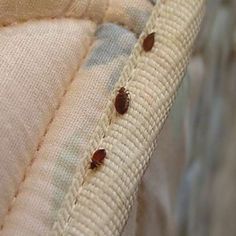Effective Bug Control Procedures to Secure Your Yard and Plants
In the world of gardening, the harmony of a well-tended yard can typically be disrupted by undesirable insects that intimidate the health and wellness and vitality of plants. Carrying out reliable bug control measures not just safeguards the yard's aesthetic allure but also plays a crucial role in protecting the plants' health.
All-natural Insect Repellents

An additional effective natural bug repellent is diatomaceous planet, a powdery compound made from fossilized aquatic microorganisms. Diatomaceous earth jobs by physically hurting bugs with its rough structure, making it an exceptional option for regulating bugs like slugs, beetles, and caterpillars. Furthermore, growing buddy plants like marigolds, lavender, or basil can help ward off pests as a result of their strong aromas or natural chemical substances.
Beneficial Insects for Bug Control

Another useful pest is the parasitical wasp, which lays its eggs inside pest insects, eventually killing them. Ground beetles are excellent for managing caterpillars, snails, and slugs. Hoverflies, usually mistaken for because of their comparable look, feed upon aphids, thrips, and caterpillars.
To bring in valuable insects to your garden, you can grow a varied variety of flowering plants, such as dill, fennel, and yarrow, which offer nectar and plant pollen for adult pests. Additionally, stay clear of making use of broad-spectrum pesticides that can hurt both damaging and useful pests. By producing an inviting atmosphere for these valuable bugs, you can reduce the need for chemical pesticides and promote a much healthier, much more well balanced yard community.
Buddy Planting Methods
When aiming to boost the effectiveness of helpful insects in your yard for all-natural parasite control, considering friend planting strategies can additionally maximize the environment balance. Companion planting entails tactically positioning specific plants next to each various other to optimize their mutual benefits, such as deterring bugs, attracting beneficial insects, or improving vitamins and mineral uptake - bed bug exterminator houston near me. One popular instance is planting marigolds together with tomatoes to fend off nematodes and various other hazardous pests while also drawing in pollinators
Growing catch plants like nasturtiums can divert parasites away from your major crops, serving as sacrificial plants that secure your valuable fruit and vegetables. By executing friend planting techniques, you can produce a diverse and harmonious yard environment that normally controls bugs while promoting plant health and wellness and productivity.
Do It Yourself Pest Control Solutions
To efficiently handle insects in your garden, applying do-it-yourself insect control services can be an economical and ecologically friendly method - bed bug exterminator houston near me. Setting up physical obstacles like row covers or netting can also protect against parasites like caterpillars from harming your plants.
Another efficient technique is utilizing diatomaceous earth, an all-natural powder that can be sprinkled around plants to hinder slugs, snails, and various other crawling pests. Buddy growing specific herbs and blossoms like marigolds, basil, and lavender can help ward off pests and bring in helpful pests. Consistently evaluating your plants for indicators of parasite damage and without delay eliminating any affected areas can also prevent infestations from spreading. By incorporating these DIY parasite control solutions into your horticulture routine, you can shield your yard and plants without bed bug exterminator houston treatment relying upon rough chemicals.
Environmentally-Friendly Pesticides

An additional effective option is diatomaceous planet, a natural material made from fossilized aquatic microorganisms, which can be sprayed around plants to control slugs, snails, and various other creeping pests. In addition, insecticidal soaps and oils stemmed from plant-based sources work for managing soft-bodied parasites like aphids, termites, and whiteflies.
Conclusion
Finally, efficient pest control steps such as all-natural repellents, advantageous insects, companion growing methods, DIY remedies, and environmentally-friendly pesticides are vital for protecting your garden and plants. By implementing these techniques, you can avoid damages created by insects and preserve a healthy and balanced and successful yard ecosystem. It is important to think about the long-lasting impact of using pesticides and choose for more sustainable and green alternatives to make certain the wellness and health of your plants and the setting.